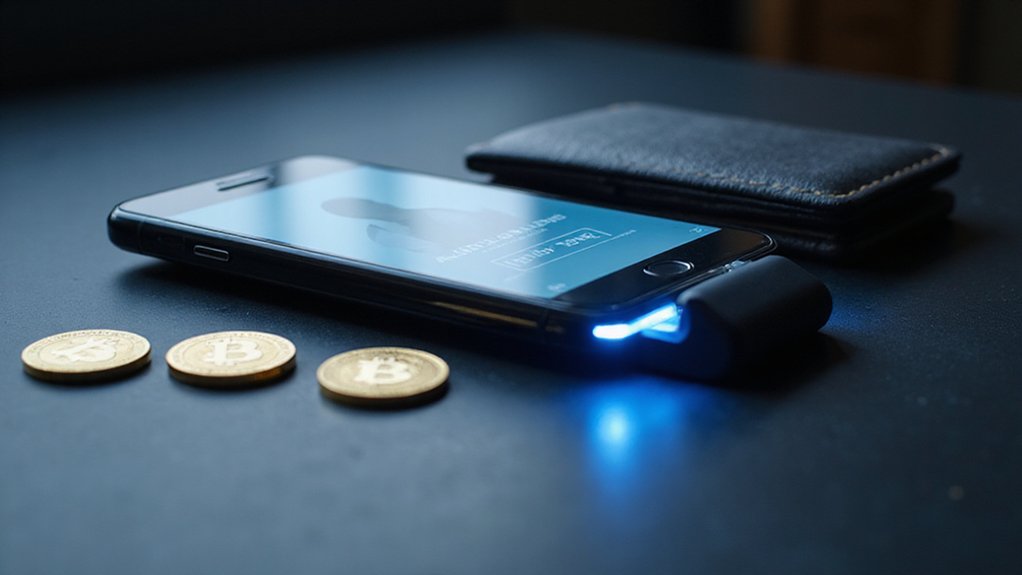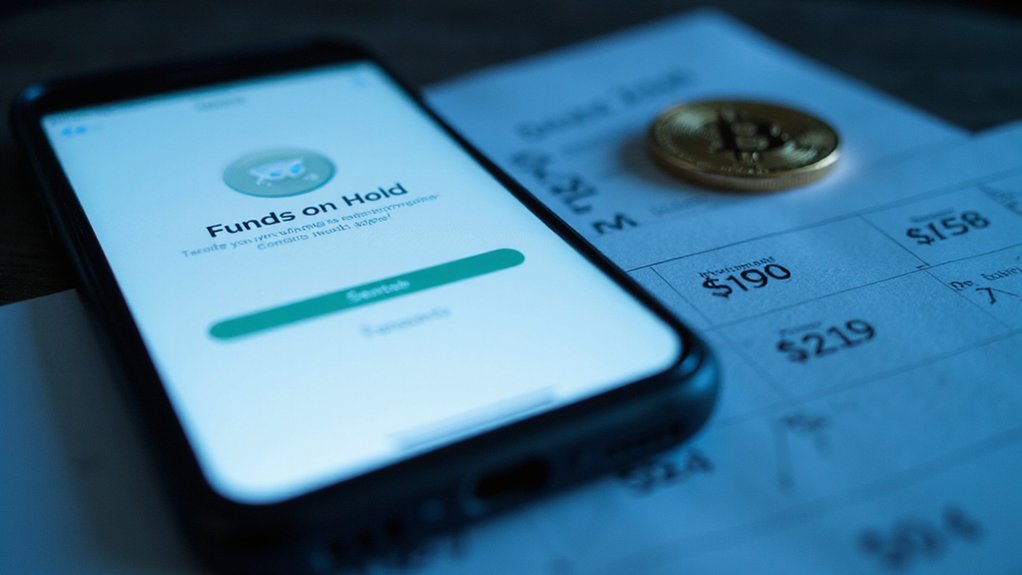Bitcoin now enables purchase of everything from daily necessities to trophy properties. Beyond conventional retail items at merchants like AT&T and Microsoft, cryptocurrencies facilitate substantial real estate transactions—from condominiums to commercial complexes—through platforms like Crypto Real Estate and RealOpen. The digital currency’s utility extends to tokenized fractional ownership models, democratizing access to luxury assets while simultaneously triggering capital gains considerations for those brave enough to convert their digital holdings. The modern investor’s toolkit continues expanding beyond traditional fiat boundaries.

Where exactly does one spend those digital coins that have oscillated more dramatically than a pendulum in an earthquake?
While Bitcoin’s volatility remains its most consistent characteristic, its utility as a medium of exchange has expanded considerably beyond the digital domain into tangible assets—most particularly, real estate.
The property market has embraced cryptocurrency with remarkable enthusiasm.
Investors can now acquire everything from modest condominiums to sprawling commercial complexes using Bitcoin and its digital brethren.
Specialized platforms such as Crypto Real Estate and RealOpen facilitate these transactions, either through direct crypto payments or by converting digital assets to fiat currency during escrow. Luxury options include stunning properties like a Canal View 2BR Luxurious Property in Manama, Bahrain, available for $747,760 in cryptocurrency.
This process mirrors traditional cash purchases in speed and efficiency while neatly sidestepping the bureaucratic labyrinth of mortgage financing.
Beyond conventional property ownership, the real estate sector has evolved to offer tokenized investment opportunities.
These blockchain-based fractional ownership models democratize access to property markets, allowing investors to purchase segments of high-value assets with unprecedented liquidity. The tokenization of assets represents a significant trend that’s projected to contribute to the NFT market reaching $247 billion by 2029.
Such innovations reduce traditional barriers to entry while maintaining the transparency and security inherent to blockchain technology.
For the entrepreneurially inclined, entire commercial ventures—from restaurants to theaters—can be acquired using cryptocurrency.
These transactions span global markets, with Bitcoin-priced business properties available across North America, Europe, and Latin America.
Investors can maximize returns through OTC trade desks that execute off-market trades without slippage, saving up to 10% on large real estate purchases.
The potential for substantial rental income and capital appreciation makes these investments particularly attractive to those seeking to diversify away from volatile digital assets.
The luxury market has similarly embraced cryptocurrency, with high-end villas in prestigious locations like Marbella accepting Bitcoin as payment.
Vacation properties near major attractions present opportunities for both lifestyle enhancement and investment returns, with crypto facilitating rapid acquisition of these desirable assets.
While the financial flexibility afforded by cryptocurrency purchases is considerable, investors should remain cognizant of the tax implications.
Capital gains may be triggered when converting crypto to purchase property—a reminder that even in the world of digital currency, traditional fiscal obligations persist.
Frequently Asked Questions
How Do I Safely Store Bitcoins?
Securely storing Bitcoin requires multiple layers of protection.
Serious HODLers employ cold storage (hardware wallets like Ledger Nano X), while isolating private keys from internet-connected devices.
Multi-signature setups—requiring multiple approvals for transactions—provide additional security against theft.
Encrypted backups distributed across geographic locations prevent catastrophic loss (a fate befallen approximately 17% of all Bitcoin).
Regular firmware updates and avoidance of Bluetooth-enabled features minimize vulnerability vectors for long-term storage.
What Determines Bitcoin’s Value?
Bitcoin’s value derives from a quartet of economic forces: its mathematically-enforced scarcity (capped at 21 million coins), market psychology (where FOMO and FUD reign supreme), growing utility as a medium of exchange, and its emergent properties as a store of value.
Unlike fiat currencies—subject to the printing whims of central banks—Bitcoin’s price reflects the market’s collective judgment on its monetary proposition, amplified by speculation and tempered by regulatory developments.
Are Bitcoin Transactions Truly Anonymous?
Bitcoin transactions aren’t truly anonymous, but rather pseudonymous.
While users operate behind alphanumeric addresses instead of real identities, the blockchain’s transparent nature records every transaction permanently.
This public ledger, combined with increasingly sophisticated blockchain analytics and exchange KYC requirements, creates a system where determined entities can often unmask participants.
Privacy-enhancing techniques like mixing services and new addresses help, but Bitcoin’s fundamental architecture prioritizes transparency over anonymity—a distinction lost on many enthusiasts.
How Are Bitcoin Transactions Taxed?
Bitcoin transactions face property-based taxation rather than currency treatment—an IRS classification that triggers capital gains reporting whenever coins change hands.
The taxable moment arrives upon selling, trading, or purchasing with Bitcoin, with holding periods dictating the applicable rates (short-term at ordinary income levels; long-term at preferential rates).
Meticulous record-keeping becomes essential, as even wallet-to-wallet transfers require documentation for basis tracking, while the IRS increasingly scrutinizes crypto activities with algorithmic vigilance.
What Happens if I Lose My Bitcoin Wallet Password?
Losing a Bitcoin wallet password results in potentially permanent loss of access to one’s digital assets—a financial black hole from which few return.
Recovery options include professional password services, systematic attempts with likely combinations, specialized brute-force software, or restoration via backup seed phrases (assuming one had the foresight to secure them).
Without these lifelines, the coins join an estimated $140 billion in stranded cryptocurrency—a monument to the unforgiving nature of decentralized finance.









